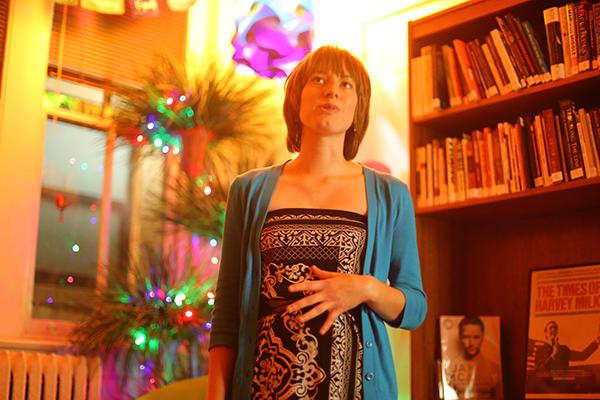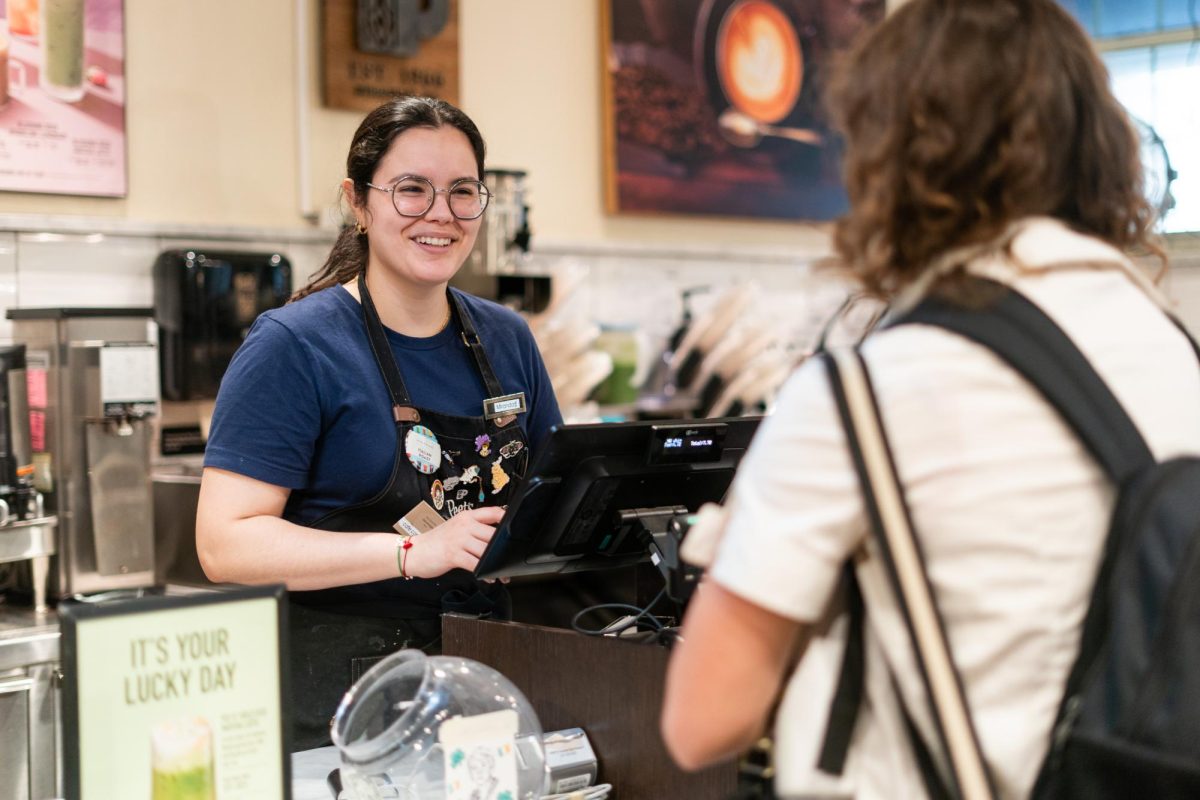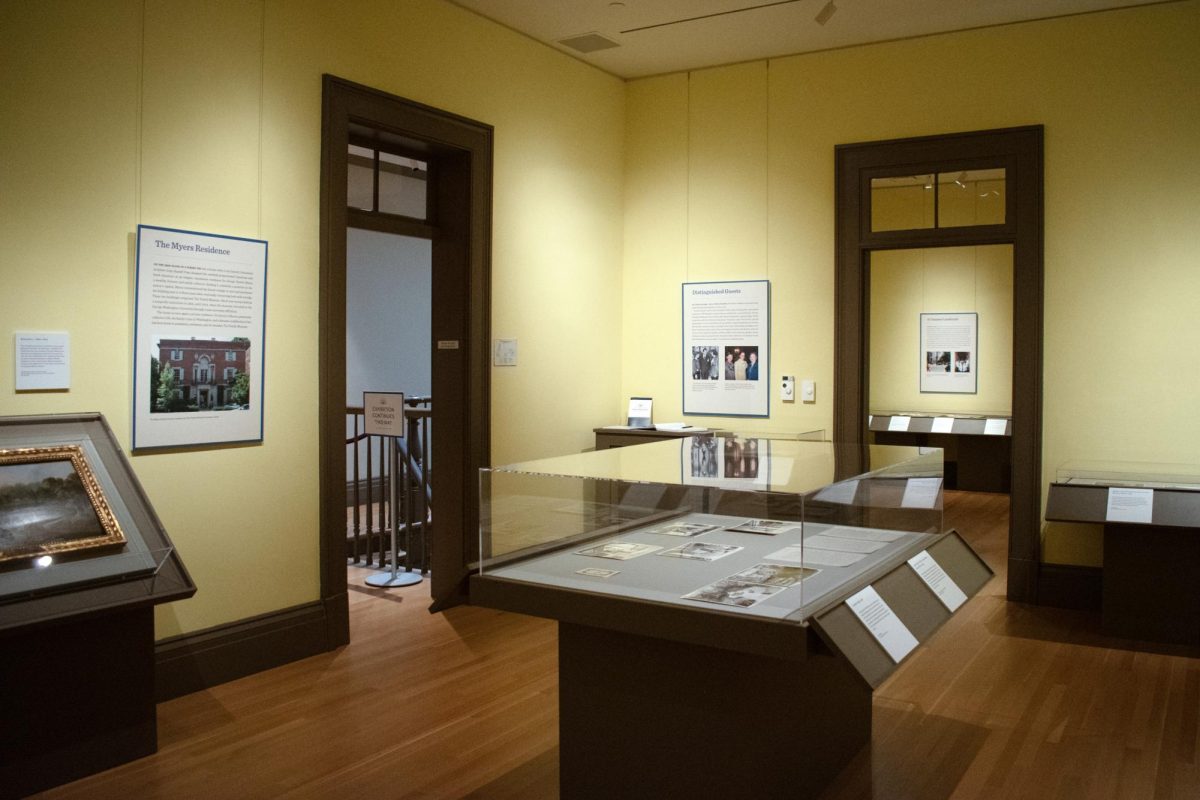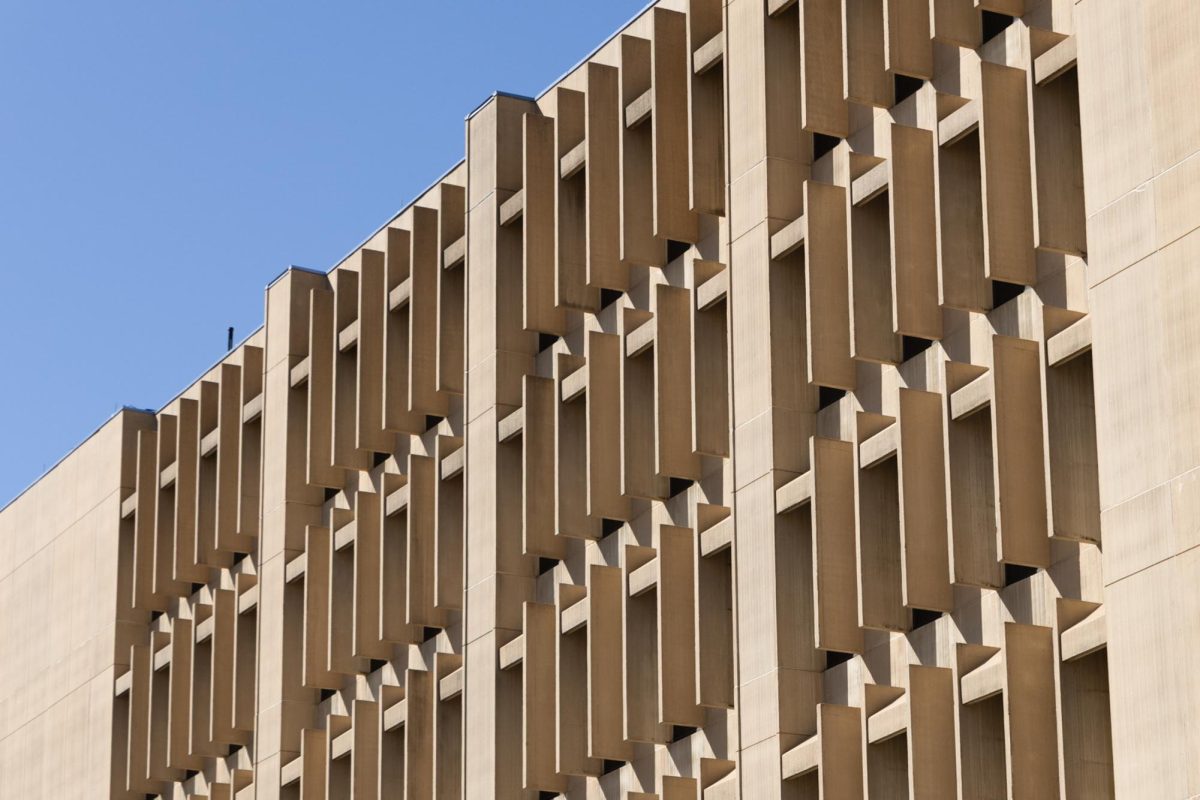After leaving her suburban high school for GW, then-freshman Robyn Di Giacinto expected to find a community of spoken word lovers she didn’t have growing up.
She sought out open mics hosted by groups like Students Against Sexual Assault and WRGW, but found that no on-campus organization specifically targeted spoken-word poetry.
So last spring, Di Giacinto and a small group of friends assembled an executive board for an organization dedicated to social engagement through spoken word.
A similar group at Georgetown called The Corpus Collective was founded in 2011, and American University has its own slam team, Mightier Than Swords.
Di Giacinto, now a sophomore and co-president of the GW Spoken Word Collective alongside fellow sophomore Anya Konecki, said interest in the organization “snowballed” this semester, which was clear at its most recent open mic: Di Giacinto expected only a dozen attendees, but almost 30 people came.
The group collects $10 dues from its dedicated member base – a group of about 25 – as well as cash donations at open mic events. Di Giacinto said this “human capital” has compensated for the small amount of funding the new group received from the Student Association.
Some members brought curious friends to the open mic last week. The group filled a small room in the Multicultural Student Services Center, where enthusiastic snapping, clapping and hoots of agreement followed each poem.

Di Giacinto, a political science major who is minoring in English, was careful to explain the difference between slam poetry and spoken word: Slam would involve the group splitting into teams and competing to one-up each other linguistically, while spoken word is a more general term for poetry recited aloud.
She said the organization avoids the intimidating nature of slam and takes a more collaborative approach to its weekly workshops.
“It’s a really supportive space,” Di Giacinto said. “The [workshop] leader will present an activity or a question that helps us to write a poem, to generate content. The idea is you get something, like that spark, that starts a great poem, and at the end we share what we have.”
Working together to find each member’s spark is a tenet of the organization, she said. Some members are also members of activist groups like the Progressive Student Union or SASA.
“We’re not so much a political org as a conglomeration of poets who are all independently activists on their own separate issues,” she said.
Devi Gonzales, a junior and English major, started classes this year with the goal of finding a community that would share poetry with each other.
Like others in the group, Gonzales uses it as a way to talk about issues like human rights and LGBT rights, as well as personal stories and observations.
“Poetry is an incredible medium for activism,” Gonzales said. “Because it’s done through creativity with language, spoken word allows access to topics that people don’t necessarily have an ability to speak on in other formats.”
When she started SWC, Di Giacinto said she knew the emotional power of poetry would help students connect with each other, especially at a politically engaged school.
Beautiful language and the anecdotes within poems can be far more effective than a politician “speaking on a soapbox,” she said. And members are more willing to listen to ideologically diverse commentary.
Di Giacinto and Gonzales said the group does not take official stances on political issues apart from human rights, and LGBT and transgender rights, and the group takes a strong stance against sexual violence.
“We encourage our members to speak their minds as much as the First Amendment allows them to,” Di Giancinto said. “So as long as it’s not plagiarism, libel or hate speech, we’re down with it. And we’ll always defend our members’ rights to express those views.”
She said the group’s broader mission is to encourage poets and audiences to think critically about political, personal and cultural issues, and the group plans to bring in guest speakers and connect members to local spoken word communities.
In September, the students participated in a workshop with Split This Rock, an award-winning youth slam team in D.C., where they learned basic strategies for brainstorming and writing poetry. They have also attended spoken word events at Busboys and Poets and co-hosted Café con Leche, a spoken word poetry night, with the MSSC in October to celebrate Latino Heritage Month.
“For our first year at GW, I don’t think that’s too shabby,” Di Giancinto said.







